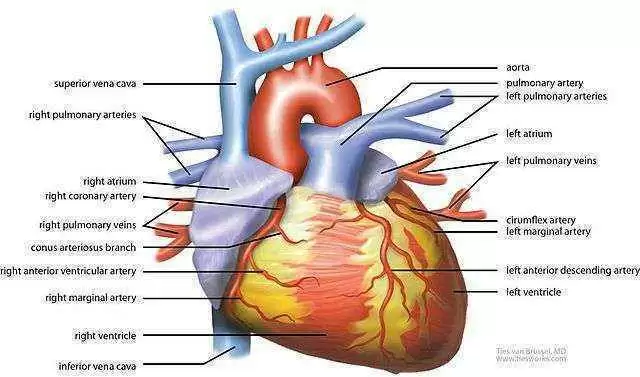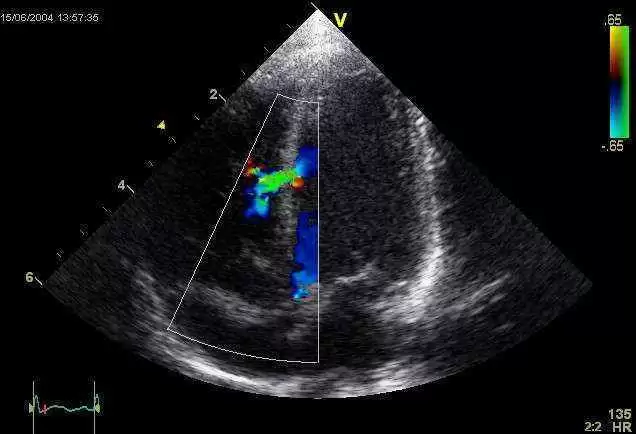Celiac.com 02/26/2003 - The subject of cardiology-related symptoms of celiac disease and celiac disease-associated cardiological disease has not been reviewed. So, here I attempt to summarize readings of research papers and abstracts of research papers dealing with the topic. My interest in cardiac related issues in association with celiac disease is related to a familial history of hypertrophic cardiomyopathy which like celiac disease can be missed and some times before a person is found to have it he/she may experience an episode of sudden cardiac arrest, or syncope (fainting). End stage hypertrophic cardiomyopathy can look like dilated cardiomyopathy. Dilated cardiomyopathy has been associated with celiac disease.
Celiac.com Sponsor (A12):
Celiac disease and Cardiomyopathy and Heart Failure
A study of 642 patients who were candidates for heart transplant in Italy found that 1.9% had anti-endomysial antibodies (AEA) (compared to 0.35% of 720 healthy controls) and that 2.2% of 275 patients with dilated cardiomyopathy were AEA-positive (compared to 1.6% in the remaining transplant candidates) (Prati D, et al, 2002, Am J Gastroenterol 97:218; Prati D, et al, 2002, Dig Liver Dis 34:39). Although an association was found, there was no way to assess cause and effect. The AEA-positive patients and AEA-negative patients presented with similar cardiologic criteria and had similar 2-year post-transplant survival. Similar, but more limited findings were described in preliminary data (Curione M, et al, 1997, Lancet 354: 222). The authors suggest a study of whether a gluten-free diet improves cardiac function in such patients. A study in Italy found that 5% of 60 elderly (over 65 years) celiac disease patients died during the study due to heart failure (Gasbarrini G, et al, 2001, Gerontology 47:306). The authors determined that this was significantly higher than the non-celiac disease population, but dont give a non-celiac disease rate. Furthermore, 0.4% of 226 non-elderly adult celiac disease patients died with heart failure as the cause and this rate was not significantly higher than the comparable non-celiac disease population. Other cardiological symptoms and disorders were not assessed.
Common Causes?
In a case study, similar cellular changes were found in both the intestinal microvilli and the heart muscle of a patient who had both idiopathic congestive cardiomyopathy and celiac disease (Chuaqui B, et al, 1986, Pathol Res Pract 181:604). While this was a limited study and the molecular causes of each were not evaluated, it is an intriguing find. In another case study, a celiac disease patient also had recurrent hemoptysis and developed heart block (Mah MW, et al, 1989, Can J Cardiol 5:191). The authors hypothesize that there is a common cause of the symptoms above. The cause is undefined by the authors. Similarly, a patient who had chronic anemia, cardiomyopathy, and heart block but did not have digestive symptoms was found to have anti-gliadin antibodies (AGA), AEA, and anti-reticulin antibodies (ARA) as well as the typical celiac biopsy (Rubio JLC, et al, 1998, Am J Gastroenterol 93:1391). The authors found that after 1 year of gluten-free diet, blood tests and biopsy were normal and confirm celiac disease as a diagnosis; but they do not mention whether or not the cardiomyopathy and heart block resolved.
Celiac Disease and Autoimmune Myocarditis
In an Italian study, 187 patients, including 110 with heart failure and 77 with arrhythmias, diagnosed with myocarditis were tested for celiac disease (Frustaci A, et al, 2002, Circulation 105:2611). Thirteen patients had IgA tissue transglutaminase antibodies (tTGA); all had anemia. Nine of the thirteen were AEA-positive; these patients also had abnormal biopsies. Thus, 4.4% of myocarditis patients had celiac disease (they compare this to 0.6% in the non-myocarditis population; this was statistically significant. Eight of the nine myocarditis patients with celiac disease had HLA DQ2-DR3, the other patient had DQ2-DR5/DR7. Five of the nine myocarditis patients with celiac disease had heart failure and were treated with immunosuppression and gluten-free diet. The other four myocarditis patients with celiac disease had heart arrhythmias and were treated with gluten-free diet. All nine patients markedly improved in cardiologic features and were tTG- and AEA-negative post-treatment (8-12 months) .
Other Cardiologic Diseases
Celiac Disease and Ischemic heart disease: In a report made in 1976, celiac disease was associated with a decrease in ischemic heart disease in 77 members of the Coeliac Society of England and Wales (Whorwell PJ, et al, 1976, Lancet 2:113). In another study with 653 celiac disease patients, the authors found no decrease in ischemic heart disease or stroke for celiac disease patients (Logan RF, et al, 1989, Gastroenterology 97:265). A recent study examined the risk factors for ischemic heart disease in dermatitis Herpetaformis patients (Lear JT, et al, 1997, J Royal Soc Med 90:247). The authors found that, compared to the normal population, dermatitis Herpetaformis patients had lower cholesterol, lower triglycerides, lower apolipoprotein B, lower fibrinogen, higher HDL2, smoked less, and were generally of higher social class.
Pericarditis
Dermatitis herpetiformis has also been found to be associated with recurrent pericarditis (Afrasiabi R, et al, 1990, Chest 97:1006). The authors found IgG, IgA, and complement in the pericardium, thus demonstrating similarities with the skin deposition of IgA in dermatitis Herpetaformis lesions.
Summary
While there hasnt been a comprehensive review by a celiac disease researcher, the research papers summarized here point to a correlation of celiac disease with cardiomyopathy, heart arrhythmias, and heart failure. The authors of the articles summarized here often point to a probable association of autoimmune disease in both celiac disease and related heart diseases.
Glossary of terms:
- Cardiomyopathy: aberrant heart muscle structure.
- Congenital: non-inherited, usually referring to what is considered a "birth defect."
- Heart block: blockage of the conduction of the heart electrical signaling system which regulates the heart beat.
- Hemoptysis: spitting blood, usually due to lesions to the respiratory tract or voice box.
- Idiopathic: often used to describe something whose origin is unknown.
- Ischemic heart disease: heart damage due to insufficient blood flow to the heart (i.e., via the coronary arteries).
- Myocarditis: inflammation of the heart muscle.
- Pericarditis: inflammation of the pericardium, a sac which encloses the heart.










Recommended Comments